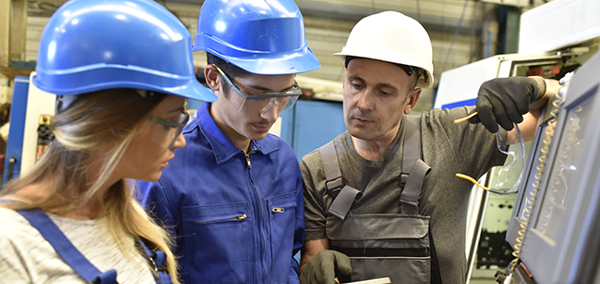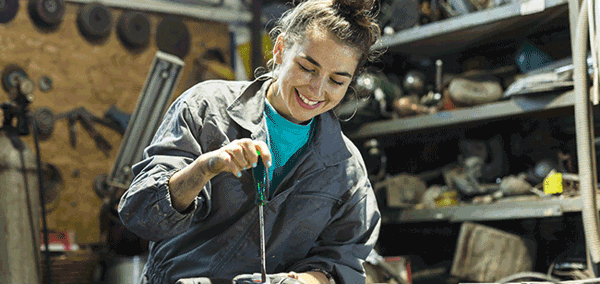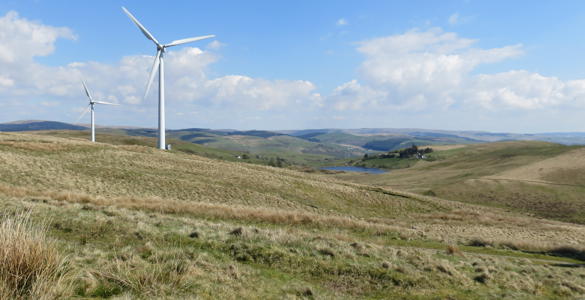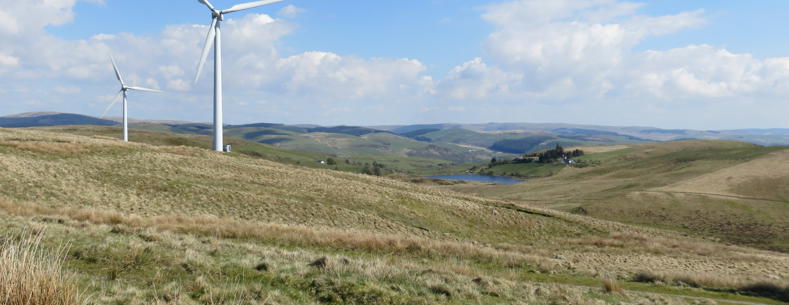The Senedd’s Economy, Infrastructure and Skills Committee has carried out a wide-ranging inquiry into how Wales should recover from the Covid-19 pandemic.
Following this week’s UK Government Budget, the Committee is keen that recovery investments are used to improve the Welsh economy in the long-term.
With promises of significant investment from the Welsh and UK Governments, the Committee has provided a range of recommendations for a green recovery that prioritises training and skills.
Invest in Skills and Training
The Committee believes that a skills-led recovery should be a top priority for the next Welsh Government and will be vital to help reinvigorate the economy, support good quality job creation, tackle low skills traps and improve Wales’ productivity.
The Committee believes that there should be a joined up approach to skills and recovery, making sure that training provision matches the needs of the economy - it is recommending that reconstruction funding should support skills development and vice versa.
In addition to investing in the right training and skills, the Welsh Government should prioritise support for research and innovation. The Committee heard evidence of how engaged, effective, well-skilled employees will deliver productivity and that productivity growth is stimulated by innovation activity.
The Committee is calling on the Welsh Government to support small businesses to invest in innovation so they may catch up on time and development lost to the pandemic.

A Green Recovery
The Committee believes that as well as the environmental benefits of a green recovery, it is also economically attractive. The Committee heard wide-ranging support from business representatives, trade unions, think tanks, academics and environmental organisations.
The Committee heard how investment in green technology and decarbonisation has the potential for rapid job creation in areas hit hardest by the pandemic, and jobs for workers with fewer qualifications than the average.
The Committee is recommending that the Welsh Government must invest in an ambitious and transformational green recovery, prioritising investment in green, natural infrastructure and decarbonising the Welsh economy.
Given the Welsh Government’s declaration of a climate emergency, it should set out plans of a sufficient scale to meet this challenge.
The Committee’s report is also recommending that the Welsh Government should prioritise accelerating ‘shovel-ready’ green infrastructure projects (building projects at the stage where workers can be employed and construction can begin) to boost job creation at the start of the recovery.
Many of those who gave evidence to the Committee shared the view that there is a real risk that Wales loses higher quality, secure jobs and sees increased casualisation of the labour market, as a result of the economic emergency caused by the pandemic.
The Committee agrees there must be a concentrated effort to avoid casualisation and to ensure that higher skilled, well-paying jobs are are not replaced by lower skilled, low-paying jobs.

Continued Support for Hard Hit Sectors
Whilst almost every business in Wales has felt a negative impact from the pandemic, businesses not able to provide online services such as the hospitality, tourism and beauty sector have been hit harder.
The Committee is concerned that the effects on the worst-affected sectors of the economy will be felt for many years to come. The Committee believes that long-term support will be needed to return to their pre-pandemic strength, or in the case of sectors that were already struggling, to help them flourish in the ‘new normal’.
The Committee heard warnings of the dangers of withdrawing support too quickly and is calling for financial help to be reduced sensitively to avoid exacerbating inequalities.
Members of the Committee believe that businesses which have felt the worst effects of the pandemic need a stronger and longer pandemic exit strategy than the rest of the economy.
Recovery for All
Evidence given to the Committee has highlighted how the effects of the pandemic have not been felt equally with Covid-19 hitting those people already on very low incomes and with little resilience the hardest. Women, people from ethnic minority communities, disabled people and the young have all been affected disproportionately.
Women, people from ethnic minority communities, disabled people and the young have all been affected disproportionately.
With the need for investment to rebuild, the Committee is concerned about the risk of ‘unconscious bias’ towards investment in jobs and skills in male-dominated employment areas.
The Committee is calling for the Welsh Government to use reconstruction funding to encourage women to take up more roles in the construction sector, particularly those jobs created by investments in green infrastructure. It is also calling for the creation of new jobs in sectors where the workforce is mainly currently made up of women.
The Committee has outlined a series of recommendations for the Welsh Government to ensure that no one is left behind in Wales’ recovery from the Covid-19 pandemic.

Preventing a Youth Unemployment Spike and a Scarred Generation
The report launched today is also outlining the devastating impact of Covid-19 on the hopes and aspirations of young people.
Wales already has two graduating cohorts of young people affected by Covid-19 and the Committee believes that the pandemic and economic emergency it has created will affect students leaving education for some time. An increase in unemployment and a decrease in GDP make it hard for young people to enter the labour market and progress their careers.
The Committee believes that without action there is a real risk of a generation scarred by COVID.
The Committee is calling on the Welsh Government to create a strategy which includes targeted interventions aimed at supporting the employability of the cohorts of people leaving education during the pandemic. It wants it to take an approach that goes beyond employability measures to build young people’s confidence and resilience.
Russell George MS, chair of the Senedd’s Economy, Infrastructure and Skills Committee:
“The Coronavirus Pandemic has had a devastating effect across the world. Whilst we have seen heroic efforts from NHS staff and key workers as well as unparalleled intervention by the Welsh and UK Governments to keep the country safe and the economy moving, Wales still faces its biggest economic challenge in living memory.
“As the health emergency recedes the nation must turn its attention to the economic emergency that has been left in the pandemic’s wake and how recovery should look.
“Both the Welsh and UK Governments have promised large investments for reconstruction. If these investments are used correctly, we will be able to tackle ingrained problems which have hampered Wales for decades and create a brighter and greener tomorrow.
“Our wide-ranging inquiry has allowed us to gather invaluable evidence from experts to provide the next Welsh Government with clear recommendations for a green recovery, with no one left behind.”




